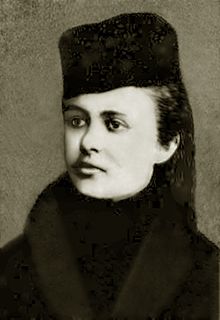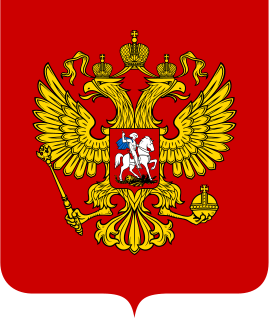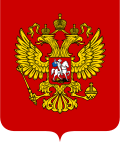Feminism is a range of social movements, political movements, and ideologies that aim to define and establish the political, economic, personal, and social equality of the sexes. Feminism incorporates the position that societies prioritize the male point of view, and that women are treated unjustly within those societies. Efforts to change that include fighting against gender stereotypes and establishing educational, professional, and interpersonal opportunities and outcomes for women that are equal to those for men.

The term Stakhanovite (стахановец) originated in the Soviet Union and referred to workers who modeled themselves after Alexey Stakhanov. These workers took pride in their ability to produce more than was required, by working harder and more efficiently, thus strengthening the socialist state. The Stakhanovite Movement was encouraged due to the idea of socialist emulation. It began in the coal industry but later spread to many other industries in the Soviet Union. The movement eventually encountered resistance as the increased productivity led to increased demands on workers.

Estelle Sylvia Pankhurst was an English campaigner for the suffrage and suffragette movement, a socialist and later a prominent left communist and activist in the cause of anti-fascism and the international auxiliary language movement. She spent much of her later life campaigning on behalf of Ethiopia, where she eventually settled.

The General Secretary of the Central Committee of the Communist Party of the Soviet Union was an office of the Communist Party of the Soviet Union (CPSU) that by the late 1920s had evolved into the most powerful of the Central Committee's various positions. Seldom in Soviet history would any other office trump the authority of General Secretary. From 1929 until the union's dissolution, the holder of the office was the de facto leader of the Soviet Union, because the post controlled both the CPSU and the Soviet government. The power of the office can be traced to Joseph Stalin when he elevated the office to overall command of the Communist Party and by extension the whole Soviet Union. Once Stalin outmaneuvered Leon Trotsky and assassinated his major political rivals through purges, the General Secretary exercised total control of party and nation. Nikita Khrushchev renamed the post First Secretary in 1953 as part of de-stalinization. The change was reverted in 1966. The office grew out of less powerful secretarial positions within the party: Technical Secretary (1917–1918), Chairman of the Secretariat (1918–1919), and Responsible Secretary (1919–1922).

Margaret Ellen Noonan, known as Peggy Noonan, is a weekly columnist for The Wall Street Journal, and contributor to NBC News and ABC News. She was a primary speechwriter and Special Assistant to President Ronald Reagan from 1984 to 1986 and has maintained a center-right leaning in her writings since leaving the Reagan administration. Five of Noonan's books have been New York Times bestsellers.

Vera Ivanovna Zasulich was a Russian socialist activist, Menshevik writer and revolutionary.
First-wave feminism was a period of feminist activity and thought that occurred during the 19th and early 20th century throughout the Western world. It focused on legal issues, primarily on securing women's right to vote.
The women's liberation movement (WLM) was a political alignment of women and feminist intellectualism that emerged in the late 1960s and continued into the 1980s primarily in the industrialized nations of the Western world, which effected great change throughout the world. The WLM branch of radical feminism, based in contemporary philosophy, comprised women of racially- and culturally-diverse backgrounds who proposed that economic, psychological, and social freedom were necessary for women to progress from being second-class citizens in their societies.
Jewish Bolshevism, also Judeo–Bolshevism, is an anti-communist and antisemitic canard, which alleges that the Jews were the originators of the Russian Revolution in 1917, and that they held primary power among the Bolsheviks who led the revolution. Similarly, the conspiracy theory of Jewish Communism alleges that Jews have dominated the Communist movements in the world, and is related to the Zionist Occupation Government conspiracy theory (ZOG), which alleges that Jews control world politics.
All-Russian Union for Women's Equality was a liberal feminist organisation formed in the Russian Empire during the Russian Revolution of 1905. The Union demanded equal political, particularly voting, rights to women. The Union had main centers in Moscow and Saint Petersburg and a number of local chapters in various cities of the Empire. At its peak in 1906, the Union had 8,000 members and 78 branches in 65 cities. The Union published monthly magazine Women's Union in 1907–09. The Union disintegrated soon after the end of the revolution. Despite lack of tangible feminist achievements, the Union succeeded in raising awareness and political consciousness of many women in the Russian Empire.

Anna Nikolaevna Shabanova was a pioneering Russian woman pediatrician and women's rights activist.

Rabotnitsa is a women's journal, published in the Soviet Union and Russia and one of the oldest Russian magazines for women and families. Founded in 1914, and first published on Women's Day, it is the first socialist women's journal, and the most politically left of the women's periodicals. While the journal's beginnings are attributed to Lenin and several women who were close to him, he did not contribute to the first seven issues.

Konkordiya Nikolavna Samoilova was a Bolshevik revolutionary and a founding editor of the Russian newspaper, Pravda, in 1912. She was a revolutionary and activist for women workers both before and after the Bolshevik Revolution. She devoted her life to the cause of proletarian women. Feeling strongly as a Communist, she sometimes used the name "Natasha Bolshevikova".

Feminism in Russia originated in the 18th century, influenced by the Western European Enlightenment and mostly confined to the aristocracy. Throughout the 19th century, the idea of feminism remained closely tied to revolutionary politics and to social reform. In the 20th century Russian feminists, inspired by socialist doctrine, shifted their focus from philanthropic works to organizing among peasants and factory workers. After the February Revolution of 1917, feminist lobbying gained suffrage and general equality for women in society; however, in the 1960s and 1970s, women continued to experience discrimination in certain career-paths as well as income inequality and a greater burden of household work. In spite of this, the concern with feminism waned during this period.
Chicana literature is a form of literature that has emerged from the Chicana Feminist movement. It aims to redefine Chicana archetypes in an effort to provide positive models for Chicanas. Chicana writers redefine their relationships with what Gloria Anzaldúa has called "Las Tres Madres" of Mexican culture by depicting them as feminist sources of strength and compassion.

Anna Pavlovna Filosofova was a Russian philanthropist and feminist. She was an important charity organiser, and, alongside Maria Trubnikova (1835–1897) and Nadezhda Stasova (1835–1895), was one of the founders and leaders of the first organised Russian women's movement.
All-Russian League for Women's Equality was the most important women's organization in the Russian Empire from 1907 to the October Revolution of 1917. It was officially registered on 6 March 1907. Its membership was restricted to women and generally varied between 1,500 and 2,000 members with main branches in Moscow and Saint Petersburg and several smaller regional chapters, including those in Kharkov and Tomsk. It was governed by a 16-member council serving three-year terms. Many former members and leaders of the Union for Women's Equality joined the league, including Zinaida Mirovich, Anna Kalmanovich, Liudmila Ruttsen, Ariadna Tyrkova-Williams and Jekaterina Shchepkina.
Norma Broude is an American art historian and scholar of feminism and 19th century French and Italian painting. She is also a Professor Emerita of art history from American University. Broude, with Mary Garrard are early leaders of the American feminist movement and have redefined feminist art theory.
The zhenskie sovety were women's councils set up in localities of the Soviet Union after 1958. They were described as "descendants of the Zhenotdel but enjoy less scope and autonomy than did their namesake".

The Union of Women of Russia was a women's political organisation in Russia. Its leader was Alevtina Fedulova.











